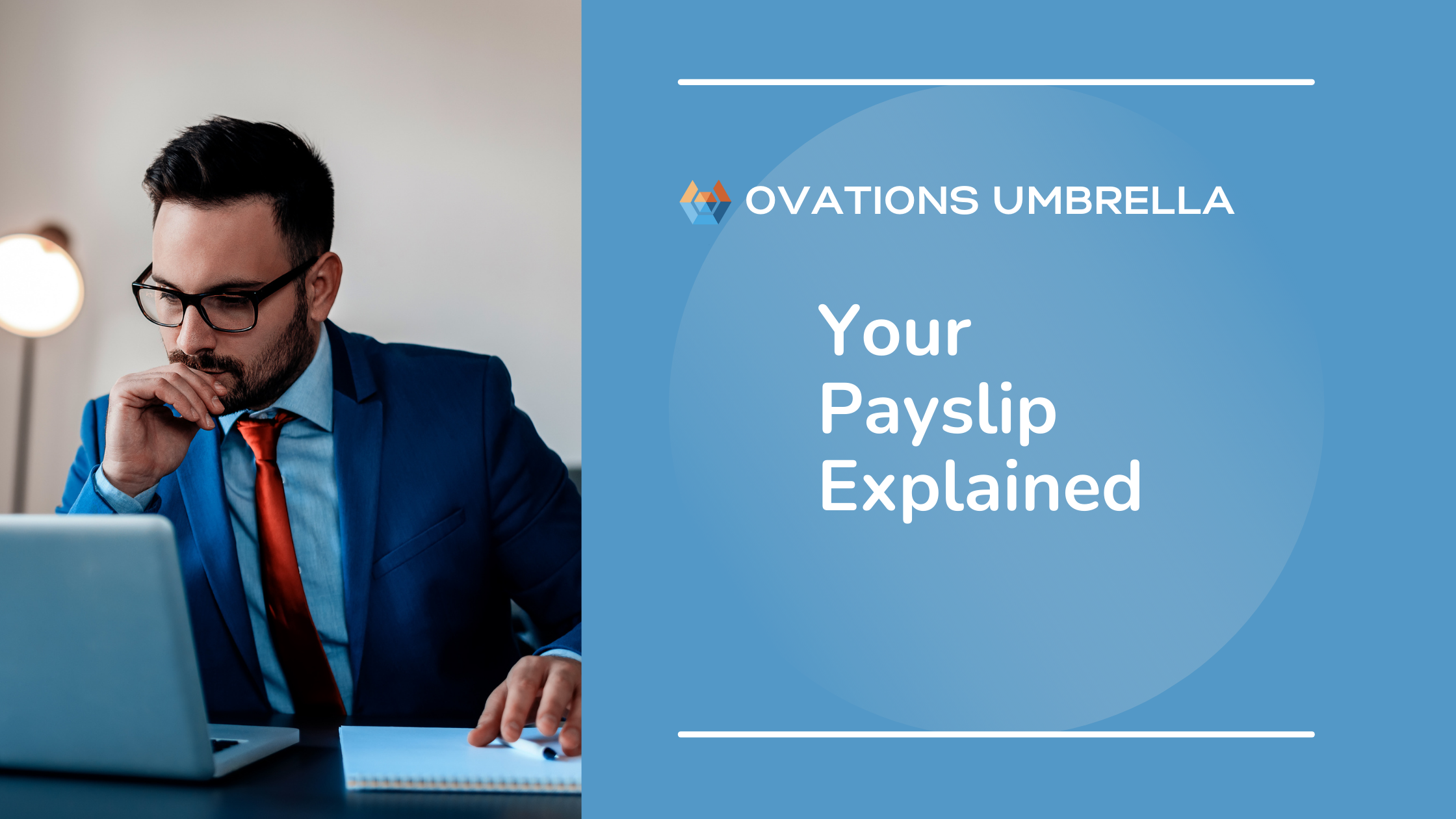Your Payslip explained

By law, UK payslips must contain the following information:
- The total amount you’ve been paid before deductions (your gross pay).
- The amount of deducations taken from your gross pay, including what the deducations are e.g tax and National Insurance (NI).
- The total of any fixed deductions taken from your gross pay, this could be things like Private Pension contribution fees which stay the same every payday.
- Your Net Pay – the total amount of money you take home after deductions.
- The method of your pay has to be made clear on your payslip by your employer.
Understanding your Payslip
Date pay is processed
This date on your payslip is when the payroll is processed, it doesn’t necessarily mean the date the money hits your bank. Usually the process date is the same day e.g every Friday (If paid weekly).
Payslip tax code and week
The tax year in the UK runs from April 6th till April 5th the following year and is broken up into separate tax periods. The tax period and national insurance thresholds are used to calculate your pay, First week of April being tax week 1, Second week of April being tax week 2, etc. (If paid weekly).
Tax code
The tax code is what tells your employer how much tax-free pay you should get before they start deducting tax. In the UK currently, the basic tax rate is 20%. You will have to pay the 20% basic tax rate if you earn less than £46,350 a year.
National Insurance
National Insurance (NI) number is a code used by HMRC to identify you from everyone else with one in the UK.
Deductions made
Certain deductions for example, Tax, Student loan repayments, if applicable and National Insurance is required by law and will always be on your payslip and deducted from your pay every week or month. If you are enrolled in a pension scheme a certain amount of your pay will be deducted and put into your pension pot. Any other deductions you see on your payslip must be agreed between you and your employer.
Net pay
Some would say this is the most important part of your payslip as it tells you the amount that you will take home after deductions are made. Always check your net pay and compare the figure that has been credited to your bank to make sure you have been paid the correct amount.
Personal information – bank details
Your personal information such as your bank details will usually be on your payslip. If either of these things changes, be sure to update your employer promptly.
Total Income
This is the part of the payslip that shows what you make before taxes, contributions, and other deductions. This amount may include bonuses, overtime pay and commission.
We hope this helped anyone who needed a better understanding of their payslip. For further assistance from our advisors, please feel free to contact us on +447879997547 or email us at info@ovationsumbrella.co.uk for any enquiries. You can also send us a message via our contact page.











Leave a Reply
You must be logged in to post a comment.